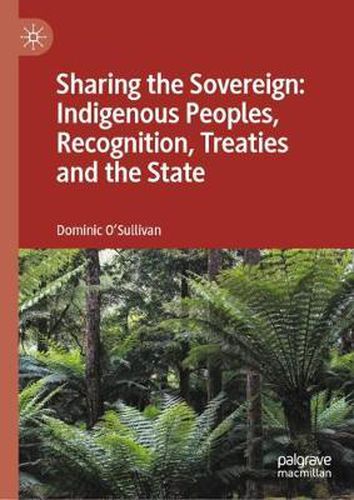Readings Newsletter
Become a Readings Member to make your shopping experience even easier.
Sign in or sign up for free!
You’re not far away from qualifying for FREE standard shipping within Australia
You’ve qualified for FREE standard shipping within Australia
The cart is loading…






This title is printed to order. This book may have been self-published. If so, we cannot guarantee the quality of the content. In the main most books will have gone through the editing process however some may not. We therefore suggest that you be aware of this before ordering this book. If in doubt check either the author or publisher’s details as we are unable to accept any returns unless they are faulty. Please contact us if you have any questions.
This book explains how recognition theory contributes to non-colonial and enduring political relationships between Indigenous nations and the state. It refers to Indigenous Australian arguments for a Voice to Parliament and treaties to show what recognition may mean for practical politics and policy-making. It considers critiques of recognition theory by Canadian First Nations’ scholars who make strong arguments for its assimilationist effect, but shows that ultimately, recognition is a theory and practice of transformative potential, requiring fundamentally different ways of thinking about citizenship and sovereignty.
This book draws extensively on New Zealand’s Treaty of Waitangi and measures to support Maori political participation, to show what treaties and a Voice to Parliament could mean in practical terms. It responds to liberal democratic objections to show how institutionalised means of indigenous participation may, in fact, make democracy work better.
$9.00 standard shipping within Australia
FREE standard shipping within Australia for orders over $100.00
Express & International shipping calculated at checkout
This title is printed to order. This book may have been self-published. If so, we cannot guarantee the quality of the content. In the main most books will have gone through the editing process however some may not. We therefore suggest that you be aware of this before ordering this book. If in doubt check either the author or publisher’s details as we are unable to accept any returns unless they are faulty. Please contact us if you have any questions.
This book explains how recognition theory contributes to non-colonial and enduring political relationships between Indigenous nations and the state. It refers to Indigenous Australian arguments for a Voice to Parliament and treaties to show what recognition may mean for practical politics and policy-making. It considers critiques of recognition theory by Canadian First Nations’ scholars who make strong arguments for its assimilationist effect, but shows that ultimately, recognition is a theory and practice of transformative potential, requiring fundamentally different ways of thinking about citizenship and sovereignty.
This book draws extensively on New Zealand’s Treaty of Waitangi and measures to support Maori political participation, to show what treaties and a Voice to Parliament could mean in practical terms. It responds to liberal democratic objections to show how institutionalised means of indigenous participation may, in fact, make democracy work better.